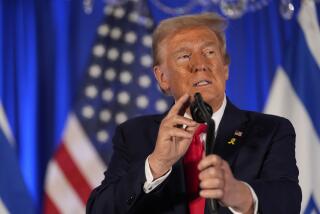How the Russia story began: ‘Russian Roulette’
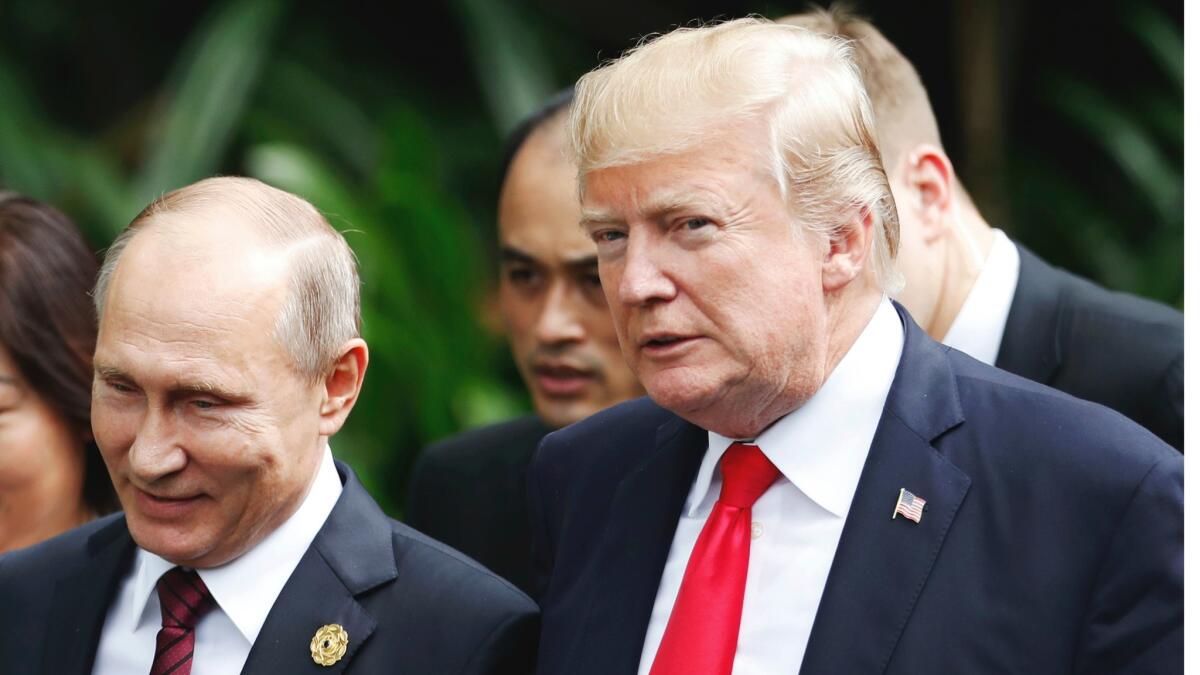
- Share via
In 2013, Vladimir Putin sent Donald Trump a gift.
Trump had just flown home to New York from Moscow. He’d traveled to oversee the Miss Universe pageant, which he owned; Trump had tried and failed to meet the Russian leader while there.
Now arrived a consolation prize of sorts. The daughter of Aras Agalarov, an oligarch known as “Putin’s Builder” after amassing a billion-dollar-plus real estate empire, showed up at the Miss Universe offices in New York, bearing a box.
“It was a black lacquered box,” write journalists Michael Isikoff and David Corn in their book “Russian Roulette.” “Inside was a sealed letter from the Russian autocrat. What the letter said has never been revealed.”
It’s an intriguing jewel of a detail, not least because it hints at how much remains a mystery about Russia’s ambitions and activity targeting Trump and the country he now leads. The House and Senate Intelligence committees launched their Russia probes more than a year ago. Special counsel Robert S. Mueller III’s team joined the fray last May; countless reporters have spent countless hours digging. Yet Russia, write Isikoff and Corn, remains “the original sin of [Trump’s] presidency, a scandal that raise[s] questions about both his legitimacy and the nation’s vulnerability to covert information warfare.”
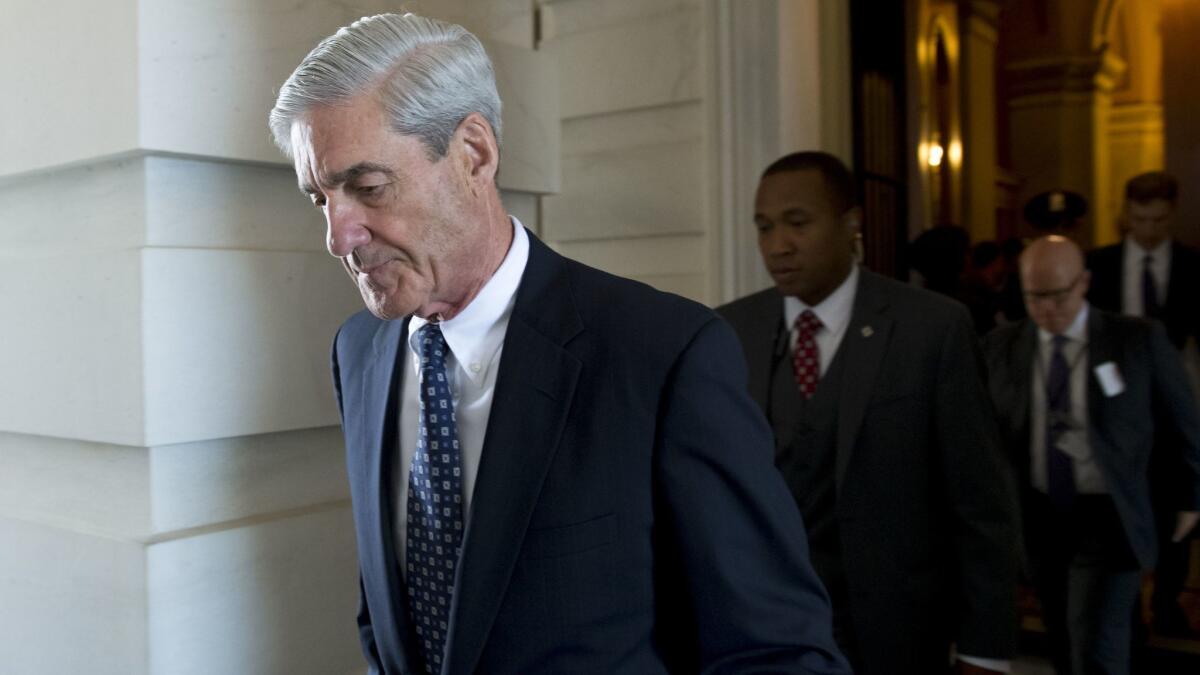
“Russian Roulette” is Corn and Isikoff’s account of how Russia consumed the 2016 presidential campaign — and the first year of Trump’s presidency. This is not the first writing partnership for these two. Their previous book, “Hubris,” appeared in 2006 and focused on the Iraq war. This latest collaboration delivers no real bombshells. No proof of collusion, no evidence that Russia changed the outcome of the 2016 election, no revelation that fundamentally revises our understanding of the trajectory of events. But “Russian Roulette” performs an important service in tracing how establishment Washington — policymakers, intelligence chiefs, journalists — came to understand that what Russia was (and reportedly is still) up to was not routine espionage.
For those of us who’ve tracked the Russia story closely, reading this account may induce something like a mild case of post-traumatic stress disorder. Here again are all the figures who fleetingly became household names in the United States: Sergey Kislyak, Corey Lewandowski, Natalia Veselnitskaya, Guccifer 2.0. Here again are all the truly, staggeringly bonkers moments we have collectively lived through.
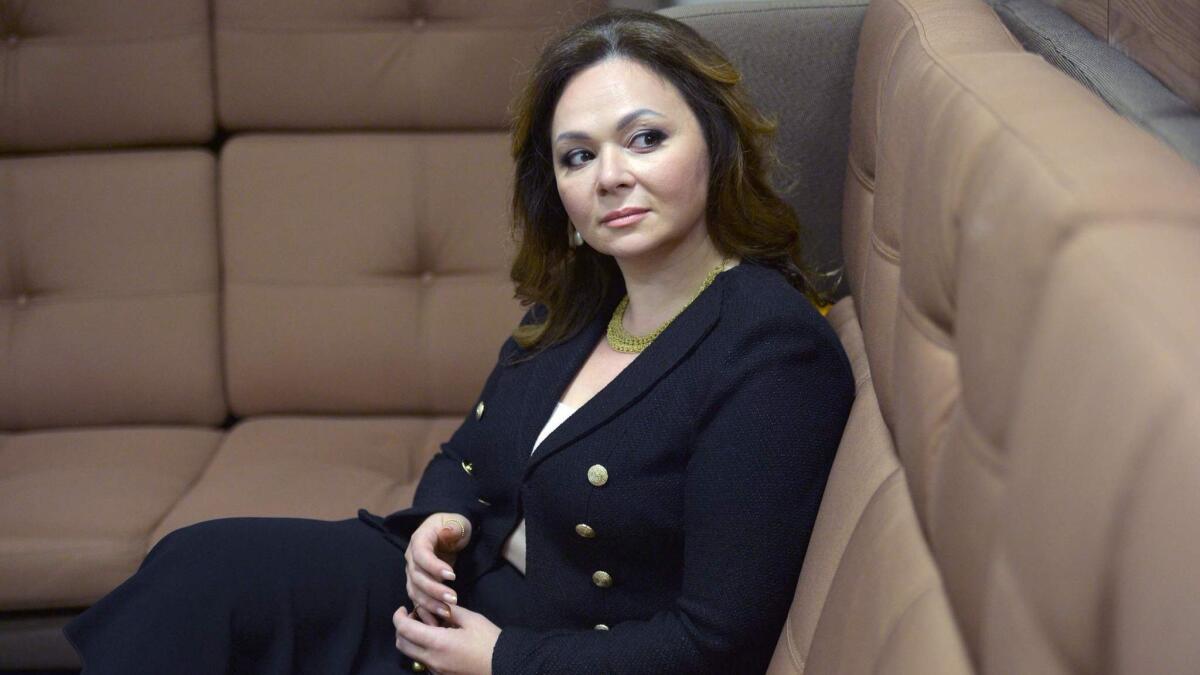
An example: I confess to slumping over in snort-giggles while turning the pages that recount the afternoon of Friday, Oct. 7, 2016.
Around 3 p.m. that day, massive news broke. The Office of the Director of National Intelligence and the Department of Homeland Security released a terse statement, declaring that Russia had “directed the recent compromises of emails from U.S. persons and institutions, including from U.S. political organizations.” In other words, the leaders of the intelligence community were for the first time publicly fingering Russia for the Democratic National Committee hack, and not only that: “Only Russia’s senior-most officials could have authorized these activities.”
I had attempted to take Oct. 7 off, and I have a vivid memory of standing on the sideline of my son’s soccer practice, scanning the statement on my phone and realizing that my weekend was shot. But before I finished filing for the NPR newscast, another shoe dropped. At 4:02 p.m., David Fahrenthold of the Washington Post tweeted, “stand by for some news about @realDonaldTrump.” One minute later, his story on the “Access Hollywood,” “Grab ‘em by the pussy” video went live, instantly imperiling Trump’s candidacy.
And still the news gods were not done. Just when you thought the afternoon could not possibly get nuttier, 4:32 p.m. brought a tweet from WikiLeaks. “RELEASE: The Podesta Emails,” it read. Some 2,000 messages from Hillary Clinton campaign manager John Podesta’s personal Gmail account were posted immediately; WikiLeaks claimed to have tens of thousands more. Soon reporters would be mining a document dump that included both serious campaign communications and Podesta’s risotto recipe.
Isikoff and Corn play it mostly straight, recounting how that train wreck of an afternoon played out at Clinton campaign headquarters and at Trump Tower. But they couldn’t resist dropping a delicious, last detail: “The U.S. presidential race was essentially in chaos. And October 7 was Vladimir Putin’s sixty-fourth birthday.”
I mean, come on. You really couldn’t make it up.
Other sections of the book, meanwhile, are hard to get through without a creeping sense of dread.
“Paul Manafort wanted back in the game,” begins the chapter on the Washington power lobbyist who did indeed want back into Republican Party politics and would find his chance as Trump’s campaign manager.
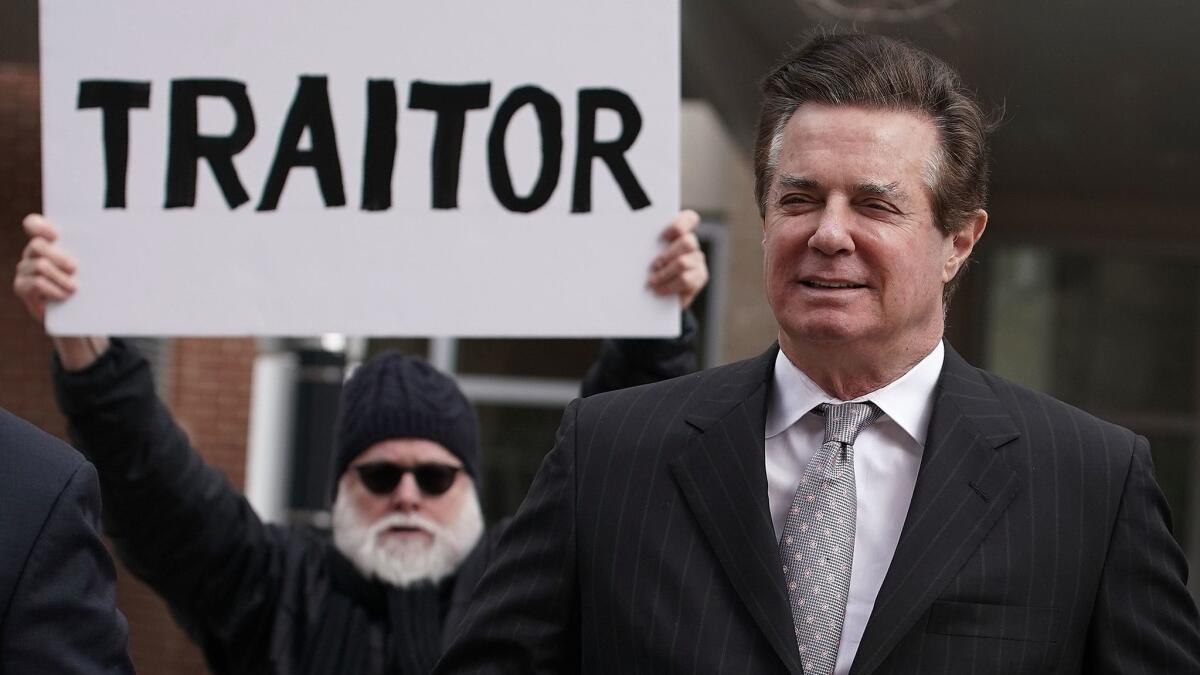
“Run away!” you want to yell, because we know what is to come: FBI raids on the Manafort home, grand juries and indictments and charges of money laundering and tax crimes and bank fraud and — well, who knows? Even as I type, this sentence is probably being overtaken by the latest turn of events in the Mueller probe. Isikoff and Corn unpack the foreign consulting transactions for which Manafort raked in millions of dollars; if you want to dive deep, deep into the weeds of his business contacts in Ukraine, this is your book. But for all the detail, Manafort the man remains inscrutable.
Other chapters do succeed at picking apart the exceedingly complicated plot lines of the Russia saga. Corn and Isikoff’s writing on the Steele dossier, for example, is the clearest, cleanest account I’ve read of how that document came to be.
“Early in June [2016], two men met for lunch in an Italian restaurant in Terminal 5 of London’s Heathrow Airport,” we are told. “They shared a deep passion: uncovering and countering the corruption and misdeeds of Putin’s regime.” The two men were Christopher Steele, an ex-British spy who “still looked the part — a dapper dresser with pale blue eyes,” and Glenn Simpson, “a tall, scruffy American with an intense manner.”
Simpson ran Fusion GPS, an investigative firm that would commission Steele to look into Trump’s trips to Russia. Simpson’s “brief to Steele was simple: ‘Tell me what he’s been doing over there.’” The result — a dossier of 17 memos that alleges, among other things, that Russian intelligence collected kompromat on Trump engaging in sexually perverted acts — has never been fully proved or disproved. Trump himself calls it fake news. “Russian Roulette” focuses less on the accuracy — or lack thereof — of the dossier and more on the character and motivations of the men who created it.
On this point, Corn and Isikoff are not neutral observers. Isikoff refers to Simpson as a “longtime friend”; Corn acknowledges having known Simpson “for years — as a colleague, a social acquaintance, and an occasional source.” The authors worked the relationship to their advantage. “Russian Roulette” draws heavily on news stories that Isikoff and Corn filed on what would come to be known as the Steele dossier before most Americans had ever heard of it; among others, their reporting caught the eye of Rep. Devin Nunes, the chairman of the House Intelligence Committee. Alert readers of the Nunes memo, the document declassified last month that alleges surveillance abuses by the FBI, will note that it names precisely two journalists: David Corn and Michael Isikoff.
“Russian Roulette” is an engaging, smart but ultimately unsatisfying read. “It is challenging to write a book on a scandal that is not yet over,” laments Isikoff. He points to sources reluctant to talk, investigations still unfolding. It’s a challenge familiar to all writers of contemporary history and current affairs: How to construct a narrative that won’t be quickly dated and overtaken by events? How to weave a story, when you don’t know how it ends?
Kelly is co-host of NPR’s “All Things Considered” and previously served as NPR’s national security correspondent. Her latest novel is “The Bullet.” This review originally ran in the Washington Post.
Michael Isikoff and David Corn will discuss their book at the Los Angeles Times Festival of Books on April 22 at 10:30 a.m. on the panel “The Russia Stuff.”
“Russian Roulette: The Inside Story of Putin’s War on America and the Election of Donald Trump”
Michael Isikoff and David Corn
Twelve: 352 pp., $30
More to Read
Sign up for our Book Club newsletter
Get the latest news, events and more from the Los Angeles Times Book Club, and help us get L.A. reading and talking.
You may occasionally receive promotional content from the Los Angeles Times.


